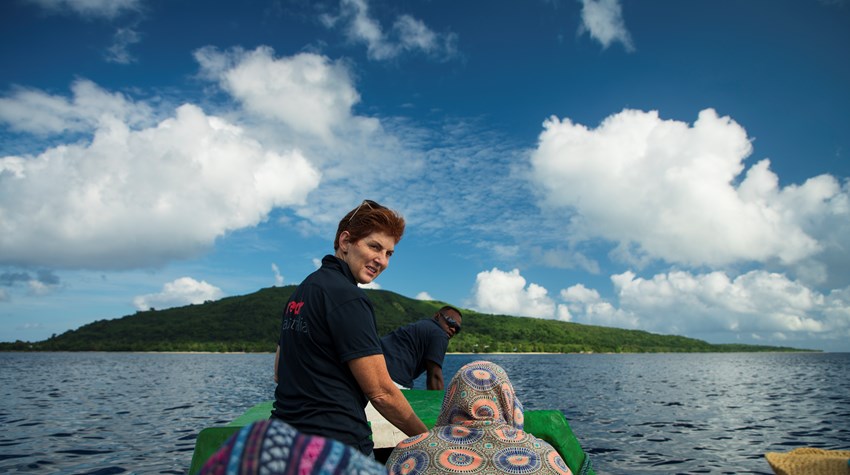Helping communities respond to this challenge was Jodie Clark, who recently returned from her deployment with the Government of Vanuatu, where she supported a range of projects working to build disaster resilience.
In 2015, Vanuatu was devastated by Tropical Cyclone Pam which caused significant damage to the country’s productive sectors and fundamental infrastructure. The country was then further subject to ongoing cyclonic activity, El Niño during 2016, flooding and landslides, and volcanic eruptions on Ambae.
Through the Australian Civilian Corps and then through the Australia Assists program, Supply Chain Management Specialist Jodie was embedded in the Project Management Unit for the Ministry of Agriculture in Port Vila, providing technical leadership, supporting project management, and strengthening logistics and procurement activities.
The photo essay below shows the range of projects Jodie helped to implement to build disaster resilience in local communities, based on the principle of “Building Back Better and Safer”.
All photo credits: Ian Parish, RedR Australia
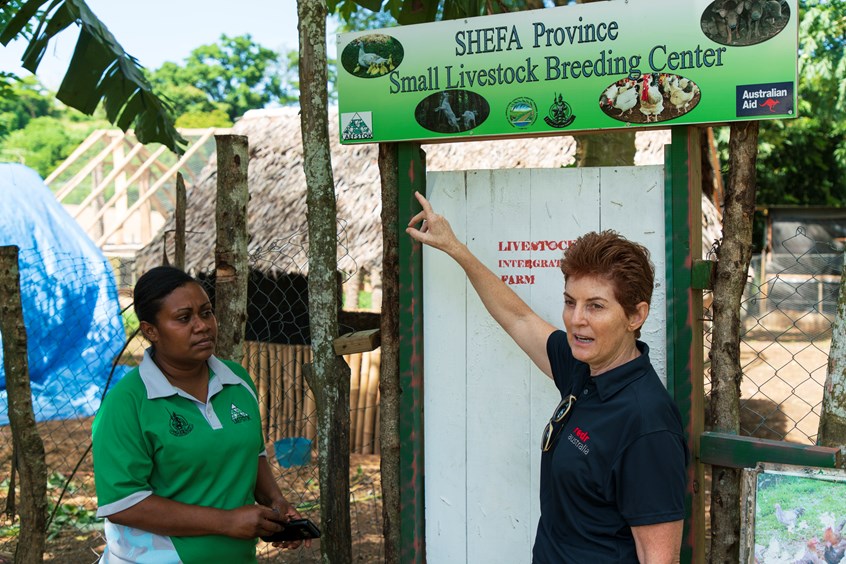
Jodie introduced the idea of a provincial breeding centre after she recognised the initial government plan to distribute small quantities of livestock to farmers across Vanuatu wouldn’t contribute to long-term disaster resilience. There are now six breeding centres across the country.
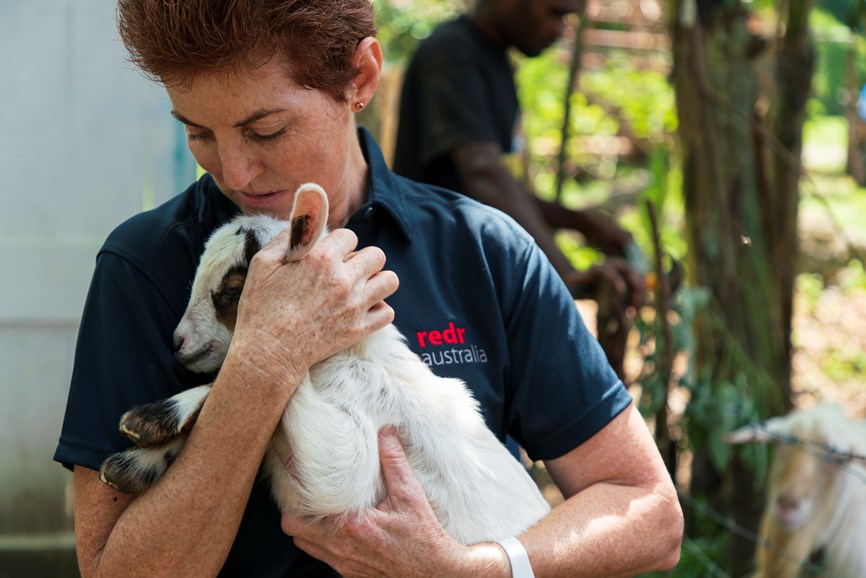
The centres breed new animals that are more resilient, fast growers and produce multiple offspring. These are then sold at a reduced rate to members of the community in a pay-it-forward program, where the animals are used in local breeding programs to multiply livestock availability.
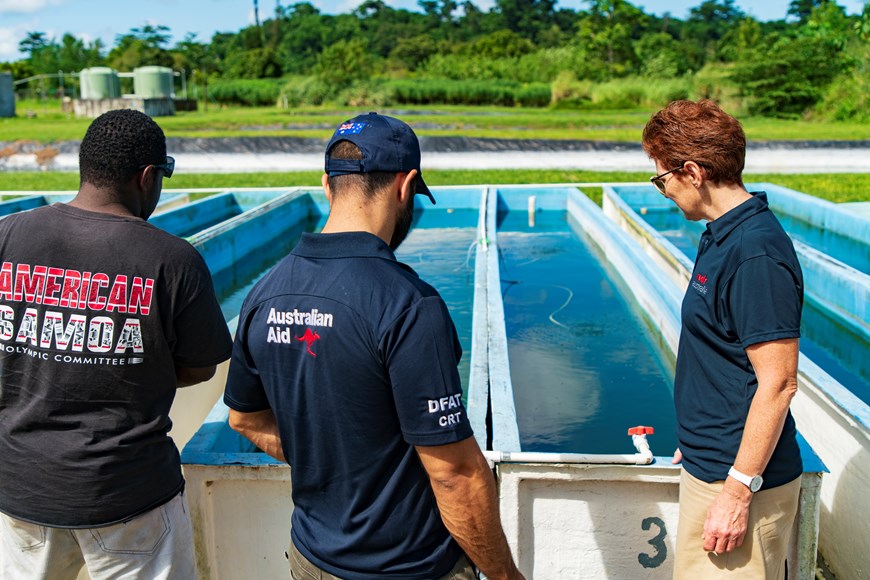
A fish nursery in Port Vila, run by the Department of Fisheries, is providing Tilapia Fingerlings to inland communities who don’t have access to ocean fishing, so that they have a constant supply of fish to sell.
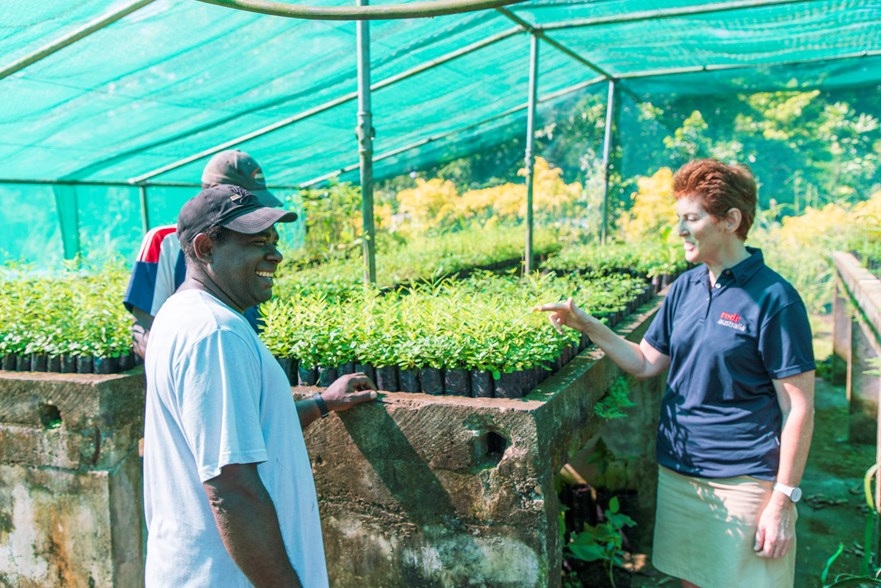
Farmers across Vanuatu now receive seedlings from the Department of Forestry’s nursery program. The program engages communities across Vanuatu to collect hardwood seeds, prioritising women and those with disabilities for the task, therefore improving economic development and employment opportunities.
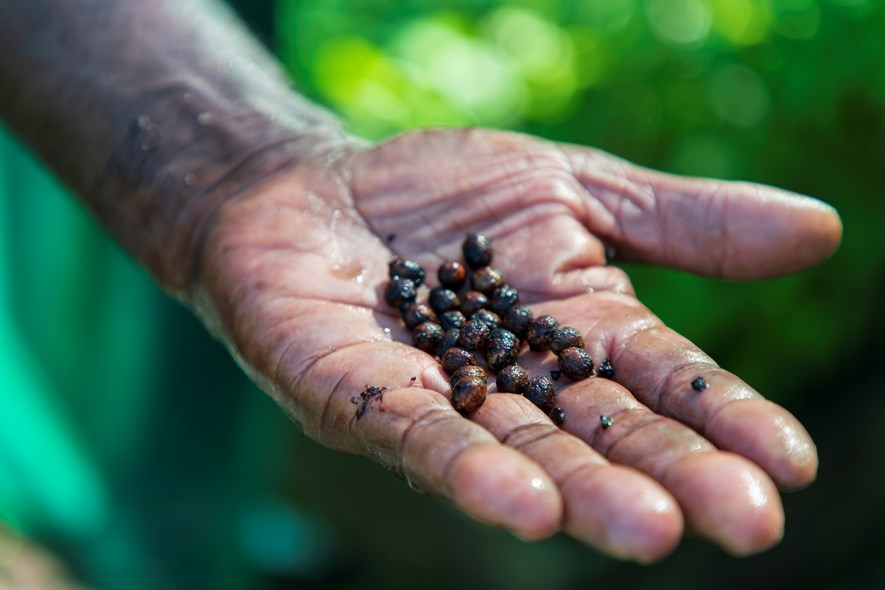
Seeds are then flown to the nursery in Port Vila, sown, and redistributed to communities across Vanuatu to support reforestation projects when they are hardy enough to be replanted. Hardwood varieties are promoted as these will be more resilient to cyclonic activity.
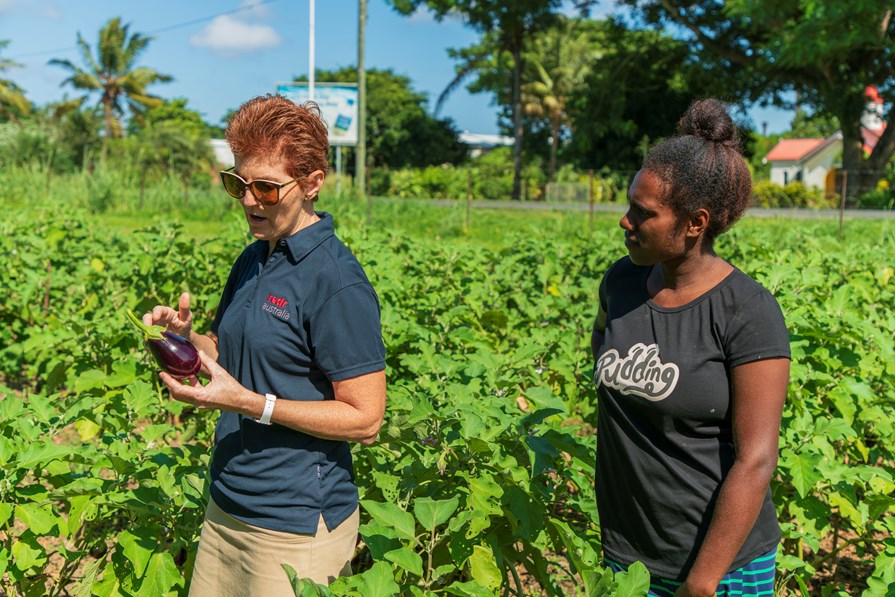
Vegetable seedlings are also produced, and farmers receive training on how to grow and sustain new types of vegetable crops, to diversify diets and improve resilient agriculture. The nurseries are supporting communities on other islands to recover from disasters faster by sharing seedlings and root crops.
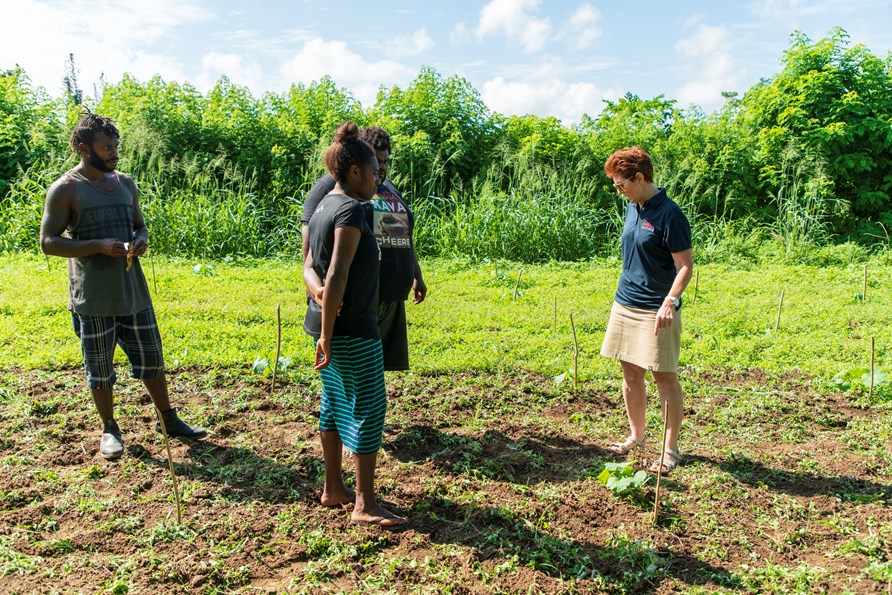
Jodie also assisted with the acquisition of five tractors to improve the productivity of farmers, and reduce the labour borne by women, who traditionally clear the forests. Farmers rent the tractors for the price of petrol to prepare their land for sowing.
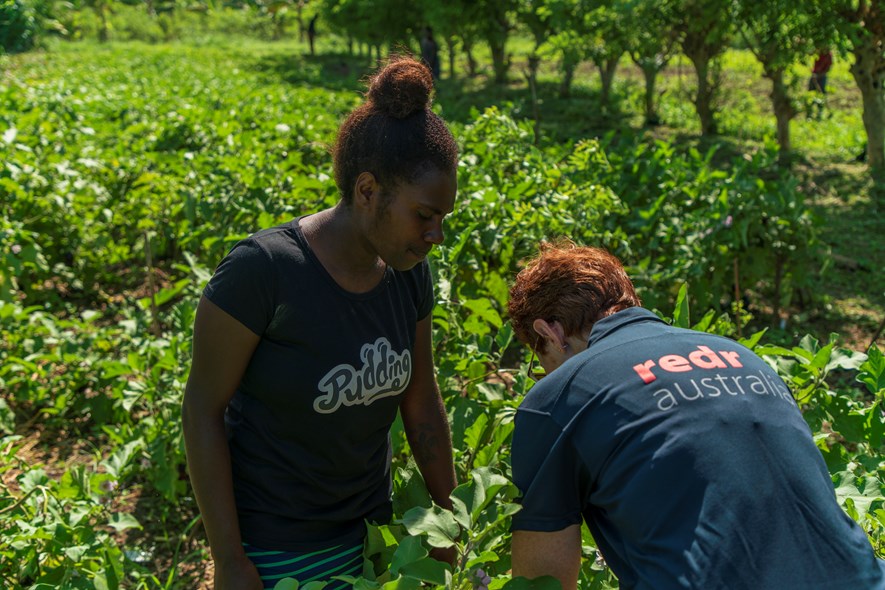
“Encouraging and training women, youth and people living with disabilities has improved their ability to generate income, to change community perceptions and to increase their opportunities,” said Jodie.
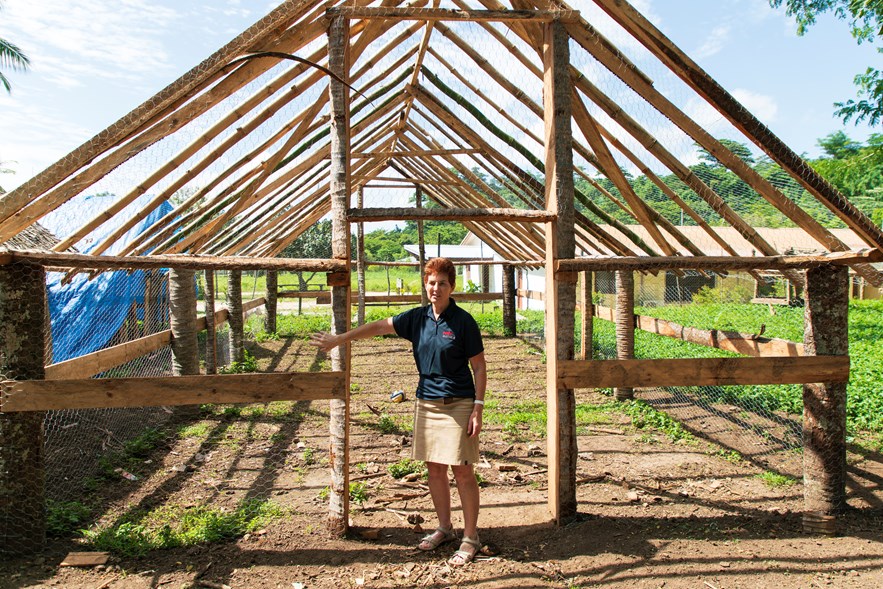
“The success of the projects is because they’re grassroots projects having a direct impact on the communities,” Jodie said, pictured above in front of a frame for a new nursery.

